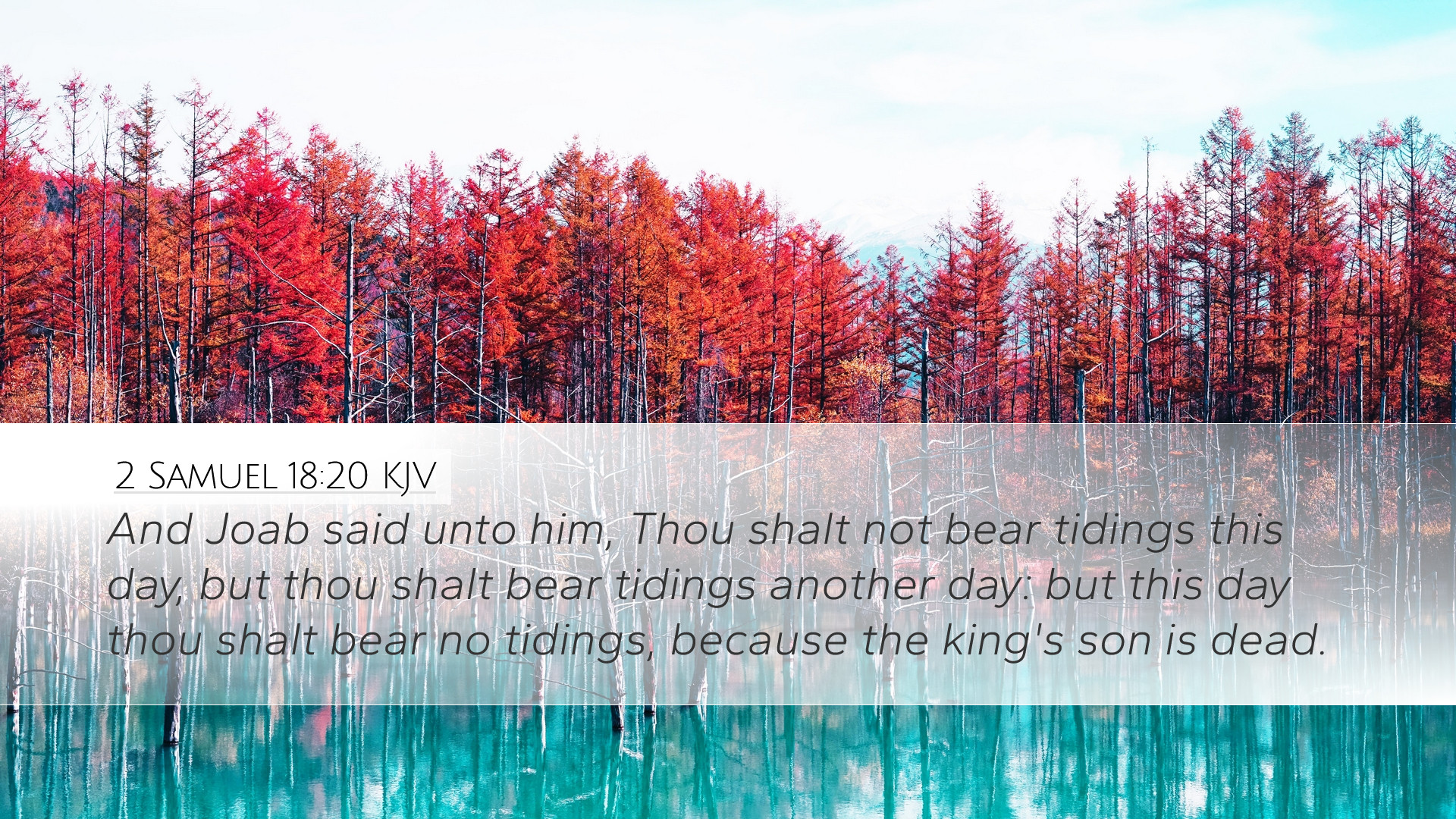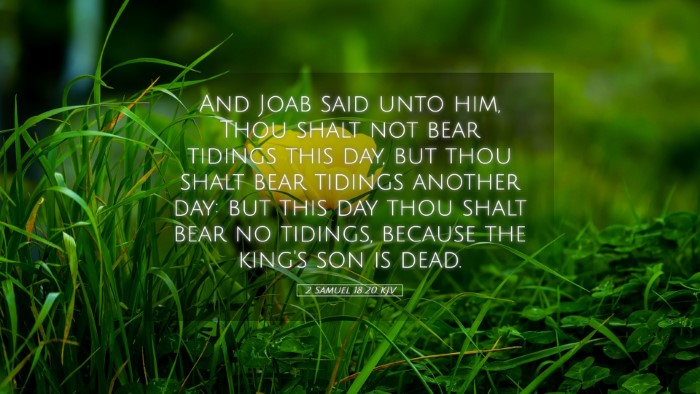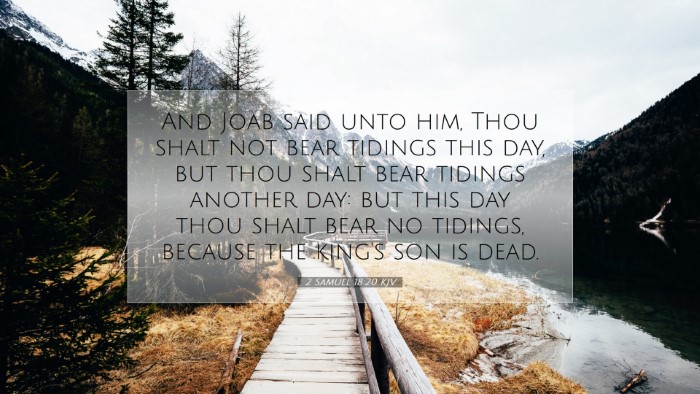Commentary on 2 Samuel 18:20
Verse: 2 Samuel 18:20 - "And Joab said to him, 'You shall not bear tidings today, but you shall bear tidings another day. But today you shall bear no tidings, because the king's son is dead.'
Overview
The context of this verse revolves around the aftermath of Absalom's rebellion against David, which culminates in a brutal and tragic outcome. Joab, David's commander, plays a critical role in this narrative, and his instructions to a messenger reveal much about the culture of honor and the sensitivities surrounding news of death, especially considering the relationship between David and Absalom.
Insights from Historical Context
-
Joab's Authority:
In the leadership structure of Israel, Joab held a significant position. His command over the armies of Israel meant that his decisions carried substantial weight. The refusal to allow the messenger to deliver news of Absalom's death reflects Joab's complex relationship with David—he understood the king's emotional turmoil and sought to mitigate his grief.
-
Impact of News on Leadership:
In ancient Near Eastern cultures, news of battle outcomes, especially regarding royal family members, was often delivered with great caution. Joab’s restraint shows an awareness of the need for sensitivity in leadership dynamics. The fallout from Absalom’s death would provoke further diplomatic and emotional complexities in David’s reign.
Theological Reflections
-
The Weight of Sin and Rebellion:
Absalom's rebellion can be seen as a profound reflection of the consequences of sin within a familial and national context. David, as the father, felt the heavy weight of his son's choices. The instruction to the messenger encapsulates the grief of a father's loss while highlighting the rebellion that led to such a moment.
-
God’s Sovereignty:
This situation also raises questions about God’s sovereignty in the face of human actions. Absalom's actions were steeped in pride, and the consequences reveal the broader narrative of divine justice at play. Joab’s decision could also be interpreted as a moment where human wisdom clashes with divine will.
Commentary from Respected Scholars
Matthew Henry:
Henry emphasizes the poignant nature of Joab's instruction. He notes that Joab's wisdom lies not just in warfare but also in understanding the emotional impact of news. Joab wished to prevent unnecessary grief being compounded by immediate reports of defeat and death. Henry points out that the nature of the news reflects on the nature of the relationship; a messenger of death brings with them not just the news but the burden of sorrow.
Albert Barnes:
Barnes highlights the notion of readiness to receive difficult news. He comments that, while all messengers serve the king, not all news is appropriate for the present moment. The strategic decision made by Joab reflects critical understanding—much like shepherding or pastoral care today, where the delivery of difficult news must be approached with sensitivity and timing.
Adam Clarke:
Clarke expounds upon Joab's role as a commander and a strategist. He suggests that his decision to withhold news was not only a tactical move but also an expression of compassion. Clarke connects this to the overarching theme of father-son dynamics within Scripture, drawing parallels to other biblical narratives where outcomes hinge on familial loyalty and the weight of choice in rebellion versus submission.
Application for Today
-
Leading with Compassion:
The lesson from Joab is crucial for modern leaders. Sensitivity in delivering difficult news is a mark of wise leadership. Pastors, teachers, and leaders are called to remember the human aspects of their roles; our responsibilities often involve emotional stewardship.
-
The Implications of News:
In our interconnected world, the rapid transmission of information can lead to situations where news, particularly bad news, is delivered without context. Joab’s deliberate act serves as a reminder that careful thought must accompany the news we share, echoing guidelines for handling sensitive information in congregational and community life.
-
Understanding Grief:
David’s impending grief illustrates a universal human experience. The Bible continually invites us to understand the weight of loss and sorrow. For pastors and spiritual leaders, this passage underscores our role in walking alongside those in mourning and offering care and support in practical and spiritual ways.
Conclusion
In conclusion, 2 Samuel 18:20 is rich with insight regarding leadership, the delivery of news, the nature of sin and rebellion, and the compassionate actions of Joab toward David. By examining this singular verse through the lenses of historical context, theological reflections, and scholarly commentary, we uncover timeless truths that remain relevant for pastoral care and leadership today. This passage not only shows the complexity of human relationships but also calls us to embody grace and sensitivity in our dealings with one another as we navigate our own challenges.


